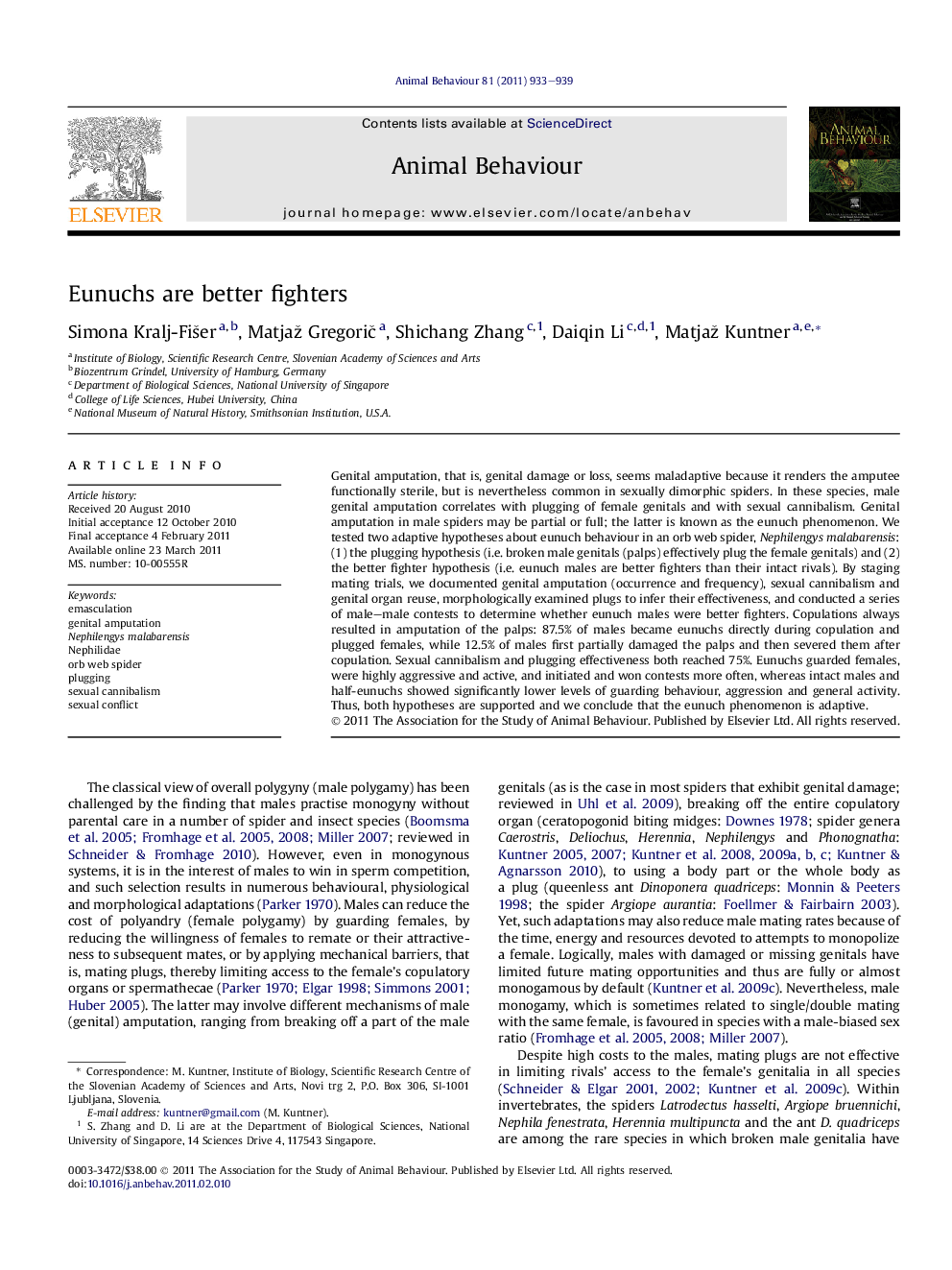| کد مقاله | کد نشریه | سال انتشار | مقاله انگلیسی | نسخه تمام متن |
|---|---|---|---|---|
| 2417049 | 1104306 | 2011 | 7 صفحه PDF | دانلود رایگان |

Genital amputation, that is, genital damage or loss, seems maladaptive because it renders the amputee functionally sterile, but is nevertheless common in sexually dimorphic spiders. In these species, male genital amputation correlates with plugging of female genitals and with sexual cannibalism. Genital amputation in male spiders may be partial or full; the latter is known as the eunuch phenomenon. We tested two adaptive hypotheses about eunuch behaviour in an orb web spider, Nephilengys malabarensis: (1) the plugging hypothesis (i.e. broken male genitals (palps) effectively plug the female genitals) and (2) the better fighter hypothesis (i.e. eunuch males are better fighters than their intact rivals). By staging mating trials, we documented genital amputation (occurrence and frequency), sexual cannibalism and genital organ reuse, morphologically examined plugs to infer their effectiveness, and conducted a series of male–male contests to determine whether eunuch males were better fighters. Copulations always resulted in amputation of the palps: 87.5% of males became eunuchs directly during copulation and plugged females, while 12.5% of males first partially damaged the palps and then severed them after copulation. Sexual cannibalism and plugging effectiveness both reached 75%. Eunuchs guarded females, were highly aggressive and active, and initiated and won contests more often, whereas intact males and half-eunuchs showed significantly lower levels of guarding behaviour, aggression and general activity. Thus, both hypotheses are supported and we conclude that the eunuch phenomenon is adaptive.
Journal: Animal Behaviour - Volume 81, Issue 5, May 2011, Pages 933–939